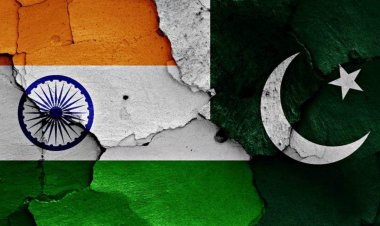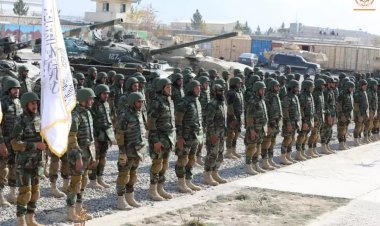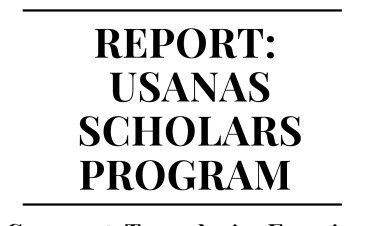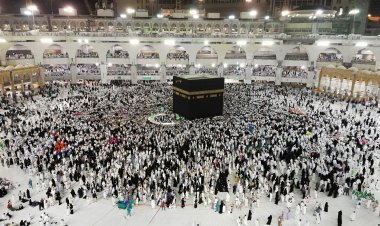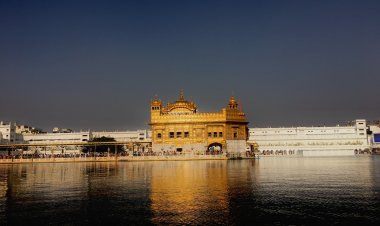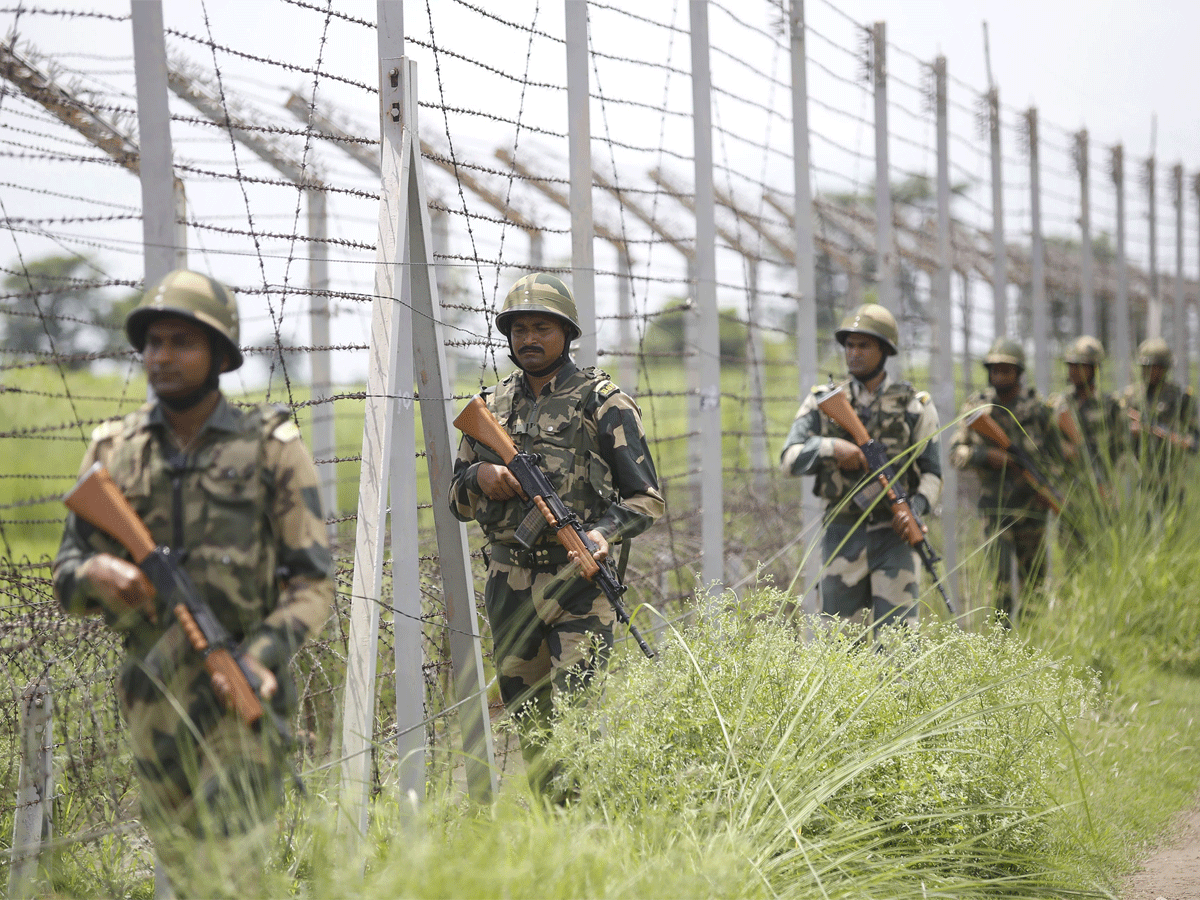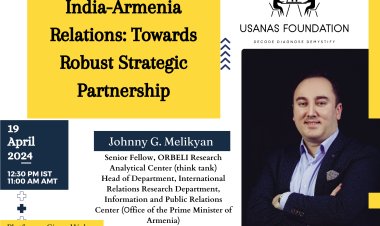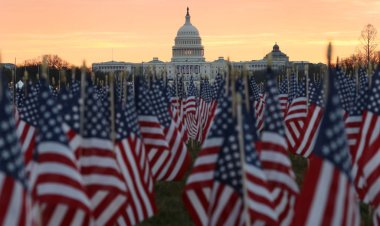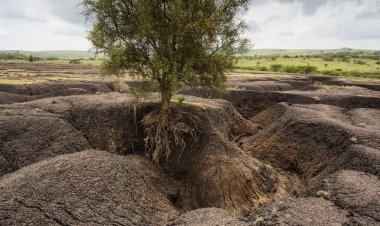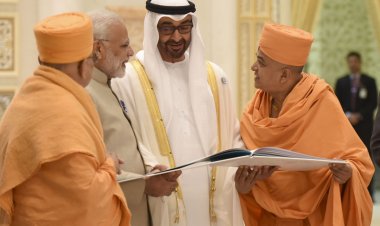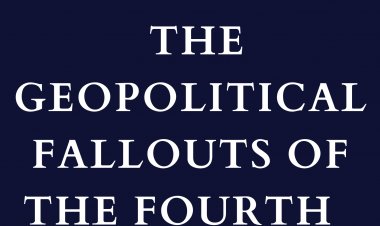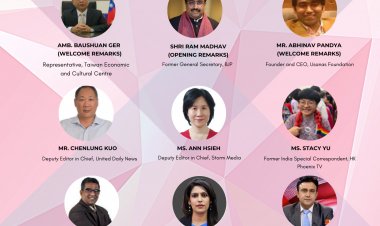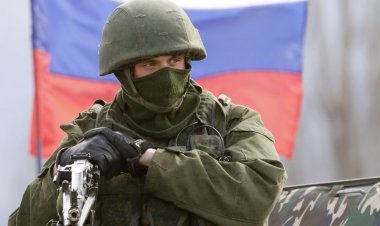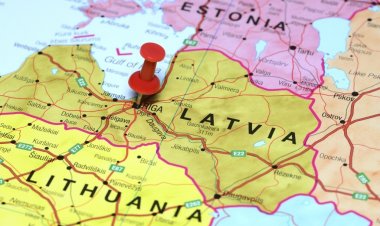Kashmir —The Ineffable Tales of Travesty
Books could be written on how matters were compromised by all and sundry at the helm of affairs and a dirty hide and seek game cost dearly to National as well as Kashmiri interest.
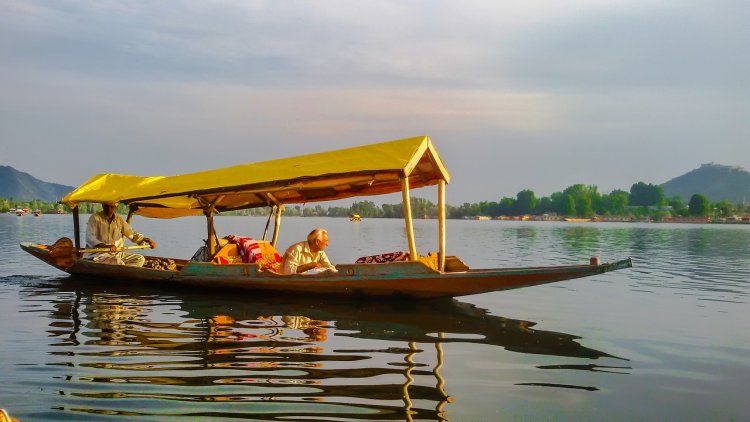
Commentary
By Zafar Manhas
“Every individual is self-sufficient in his search for the divine. There is a rule regarding this. We were all created in His image, and yet we were each created different and unique. No two people are alike. No two hearts beat to the same rhythm. If God had wanted everyone to be the same, He would have made it so. Therefore, disrespecting differences and imposing your thoughts on others is tantamount to disrespecting God’s holy scheme.”
(The forty rules of love)
Élif Shafak
Before touching the subject, may I share that I am a child of mountains. Born in hilly forest areas of Shopian district of southern Kashmir, I have lived my childhood in the lap of nature, where I have learnt how co-existence is essential for an ecosystem. Later on, I moved towards suburban and urban areas for academic education and professional pursuits, where I landed in the Academy of Art, Culture & Languages. Here I further learnt how diversity is important for unity, how linguistic identities are relevant for heterogeneity, and how diversification is important for the configuration of a colourful society.
Some bitter truths:
In the forthcoming paras, I would like to place on record my fragmented but honest analysis and a few corrective measures with respect to some serious issues we are confronted with in Kashmir. At the very outset let us be forthright to acknowledge that whether we like it or not, Kashmir shall, as usual, shall remain special in future for good or bad reasons. Located in the vicinity of two very hostile neighbours coupled with the baggage of history, Kashmir calls for special attention and utmost maturity on all fronts, be it socio-political, socio-economic, socio-religious or socio-cultural facets of life. Let us also be honest to admit that it is much more and far bigger than a mere law and order problem.
Undoubtedly our borders are more strong and formidable than ever before, but that is not enough. We have to tackle the enemy sitting in our backyards, and at the same time, we shall have to put our own house in order. This could be done only if we make sincere efforts to understand the causes of the ever prevalent disorder leading to alienation, indifference or hostility. We shall have to allay fears and insecurities cultivated in the minds of common people (Kashmiri Muslims) by various State and Non- State groups for varied and even opposing reasons. This is a sad story of the arrogance of power and dictatorial attitude of New Delhi responded and reacted with mindless use, misuse and abuse of indigenous sentiment by local groups and individuals as per their less political and more personal gains. With the passage of time, this has turned into a deep-rooted trust deficit, having been reinforced over decades of indoctrination.
Apart from sinister designs of those from within and across who have been opposing J&K’s accession with India from the day first, New Delhi’s (read Congress) Kashmir Policy during the last six decades particularly from 1953 to 1996 played a major role to complicate the situation beyond recognition. In my humble estimation, Congress as a ruling Party never made any sincere efforts to engage and integrate Valley Muslims with Indian mainstream as proud citizens. Rather, it appeared to be more interested to pursue ornamental and inorganic ways and methods. Hence with the support of money and muscle power, the Congress was planted in various types of vases, containers, urns and jars, whereas as a law of nature it never grew or flourished in spite of many stages of managed dramas and shameful political coups.
For decades democracy was abused rather than raped here in the broad day glare on the name of elections, wherein, as beautifully summarized by late Arun Jaitley in the parliament, “Khaliq Made” playboys were showcased as people’s representatives. (Abdul Khaliq, then a deputy commissioner, had notoriously mastered the art of rigging elections. The term was first coined by Late Shamim Ahmad Shamim, then the independent MLA from Shopian. Shamim later became MP defeating Bakshi Ghulam Mohammad, the then former Prime Minister.) The most ironic aspect of this exercise was that most of these young Turks of Congress brigade were either pro-Pakistanis pushed to the wall by the Sheikh regime or those having a criminal background who never faced or bothered to face the people in real sense. Unfortunately, every shameful act of theirs and shortsighted moves of the union Government were attributed to the Republic of India instead of Congress and its cronies in Kashmir. New Delhi or Delhi Darbaar became a buzzword and political coinage by and large of all regional political and socio-religious parties. To be honest, the idiom used was endowed and authenticated by the central government more overtly and less covertly. The situation was smartly exploited by NC and its allied groups, particularly the Plebiscite front. How both Congress and National conference overplayed for petty gains could be estimated by the following few examples:—
- Sheikh Abdullah was dismissed; arrested and transported out from Kashmir during the dead of the night and was later tried under the infamous Hazratbal conspiracy case. The case, as usual, was dragged for years and then withdrawn. Sheikh who was projected as a traitor became once more a hero. He was deputed to Pakistan with much more fanfare to discuss Kashmir dispute with Pakistan President Ayub Khan and others. He was again dumped after Nehru’s death and then released only to be appointed as Chief Minister without a slightest democratic activity. The Sheikh on his part had no qualms to embrace those whom he called the worms of a gutter.
- In 1984, Farooq Abdullah’s elected Government was toppled again in the dead of night. This time the only sin committed by Farooq was to have joined hands with opposition Sangthan led by Lok Nayak JP Narayan. This made Indira Gandhi all furious. Those were the days when Farooq at the peak of his frustration would say his followers, go and dig the grave of his father, who supported accession with India against Islamic Pakistan. Within a span of two years, everything became honky dory. Then Kashmiris witnessed the worst ever rigging, naked vandalism and murder of Indian democracy under the full glare of National and International media paving way for Pakistan designed and sponsored militancy in J&K. The irony is when he was more than ever required to brave the brunt of terrorism, putting his tail in his legs, he left the valley and thousands of his supporters for safe havens of UK. Let us not forget this bitter fact that in the early nineties, the intifada type People’s movement after Farooq Abdullah’s resignation was not the outcome of gun culture alone but had full backing and support of NC’s middle rung leadership with the tacit approval of party elders. The fact of the matter is that NC’s cadre, well equipped with political tricks and tactics, was forced to play à pioneering role in the mobilization of people’s support through mosques. These few examples are just a tip of the iceberg.
Books could be written on how matters were compromised by all and sundry at the helm of affairs and a dirty hide and seek game cost dearly to National as well as Kashmiri interest. I am not reminded of a single election wherein the regional parties from the valley would have asked people to vote in the name of secularism, democracy, Gandhism or any sign of nationhood. India being the ‘Delhi Darbaar’ was smashed and bashed to the hilt during election periods. It was always projected as an imperial Hindu power, essentially and inherently anti-Kashmir (Muslims) and pro-Jammu. An arrogant centre hell-bent to demolish Muslim majority character in Kashmir to pave way for Hindu Dogra rule once more would form the core narrative even during bonhomie period between NC-Congress or PDP-BJP. One can recall Miss Mufti’s speech in the State assembly making a fervent appeal to opposition leader Omer Abdullah to join hands against the ill-intended moves of New Delhi against the special status of J&K. Even on 15th August 2017 as CM she didn’t mince words in presence of senior civil and military officers. She warned New Delhi against any (mis)adventure of far-reaching consequences. Hence there is no reason to be astonished vis-à-vis the ultimately brewed deep-rooted alienation in people in Kashmir. It was all along the ‘Us versus Them’ scenario.
Here I am more than inclined to narrate an incident which further reinforces my argument. It is a 2002 story; I was in Delhi having lunch with a friend. He inquired about the recently held elections that who is going to win. I replied to anyone Farooq or Mufti, but Delhi has already lost the battle miserably. Annoyed, he asked what rubbish you are talking about. We are the winners in both ways. I very humbly but firmly told him that I am not privy to just one single instance when Farooq or Mufti would have sought votes in India’s name. Rather, they overtly criticized New Delhi for its dictatorial policy and colonial approach to Kashmir. They at the same time appreciated Pakistan, covertly and in a veiled manner. Both the parties had a jibe on the other for being stooges of New Delhi.
Before proceeding further, I am tempted to make a special reference regarding the so-called «Agenda of Alliance » between BJP and PDP. In my humble but most considered opinion, this unfortunate alliance proved to be the last nail in the coffin. This dented beyond recognition the already torn apart bond of mutual trust and confidence. This was one more foolhardy, an act of mere power-sharing on the pretext of bringing north and south poles closer to each other. During the election campaign, both the parties tore apart each other, leaving no stone unturned to bash and punch each other. In Jammu, the top leadership was at pain to tell the natives of Dugger Désh that it is a golden opportunity for them to get rid of valley-based soft separatism and step-motherly treatment to them so far by Kashmiri (Muslim) leadership particularly the ‘Pita-Putri’ (father-daughter rule of PDP’s Mufti Sayeed and Mahbooba Mufti) family rule. On the other hand PDP was categorical to direct its star campaigners to train their guns towards BJP, targeting everything from Ayodhya to Gujarat to Article 370. Both NC and Congress were virtually spared by saying that our first and foremost endeavour is to halt the onslaught of communal and anti-Muslim BJP led by RSS. But as is usual with political parties and leaders, everything was kept aside in the name of expediency and the so-called respect for peoples’ mandate. I, though a small fish, was amongst the few who opposed this move but who was there to listen. Even late Mufti who was otherwise very cool and sober by temperament snubbed me for my subjectivity.
In this background, no rocket science is needed to fathom the genesis of alienation in Kashmir. It is not something sudden or unexpected but a long drawn brick by brick build up as the verse goes, “Waqt Karta hai Parwarish Barsoon—-Haadisa Aik dum Na bi Hota.” The people feel threatened and their insecurities have gone deep down and have become an inalienable part of their psyche, particularly after 5th August 2019. Let me reiterate my contention for these insecurities and threat perceptions for which common people can’t and shouldn’t be blamed or held responsible. I am sure that 98 percent of people in Kashmir don’t know what this Article 370 is all about but let me be equally honest to acknowledge that the same percentage of them have been indoctrinated to the extent that they believe that by losing Article 370, they have lost everything. They stand to have been rendered as slaves on all fronts. Even their religion is under constant threat, and with passing time they would be brought down to the level of a tiny minority. They will be gradually disempowered in all fields, having no say in policy planning.
The matter of the fact is that during the last six decades, particularly after 1990 onwards, hysteria has been deliberately cultivated around the jingoistic narrative of autonomy and self-rule with the blessing of New Delhi for known reasons. If autonomy was the political bible of NC, Self Rule became the political Kalima of PDP, which later had a reference in the so-called Agenda of Alliance. All these parties and groups which weaved their politics around “Short of Azadi — Sky is the Limit,” received an amazing response from within and even at the international level. Hence those who had been rendered as untouchables in the early Nineties and had to take refuge in Jammu or Delhi, overnight became the custodians of “Kashmir Cause”.
Think Tank of national and international repute and human rights organisations would invite these leaders to present their viewpoints. They were even facilitated to travel to Pakistan and deliberate with the civil and military junta in Islamabad. This merits to be put on record that even under the auspices of present regime passports were arranged in a brief span of hours, and prominent secessionist leaders were allowed to travel to Muzaffarabad via Uri. This shows how the newfound jingoism was allowed to flourish and there are no two opinions that this madness had certainly a method. The moot point was to dilute the pace and velocity of Azadi slogan. This is how Article 370 of the constitution became a holy cow and the best possible escape route for Kashmiris. No one ever told the wretched of the earth that 95 percent of clauses have already been dropped or made redundant, and the article was just a Trojan Horse! Having realised that Azadi was nowhere in sight, they did pin all their hopes around the concept of autonomy embedded in Article370.
Hence when abrogated, without even a warning shot, it stunned all and sundry beyond expression. The unprecedented security measures, the secrecy maintained around the operation, and the total exclusion of Muslim officials made the move more intriguing and suspicious. Kashmiris had never witnessed that kind of day coming in their lives of the sorts. This is why even people like Altaf Bukhari who have decided to be a part of the new system and have reconciled with the new ground reality term the 5th August episode as a coup. “We were rendered naked on the roadside and our house of honour and pride was raised to the ground,” said Bukhari more than once. These are the vital ingredients of present-day alienation and to win over people and to regain their confidence some bold decisions are to be made. A few years back during one of my interactions at India foundation New Delhi responding to a question I did make this statement. “The little child asked his father if you were in a jungle and found a lion before you, what would you do? “My son, I shall have nothing to do as the King of the jungle shall, as and whatever he wishes. Same is more than true in the present scenario for Kashmiris. It is high time that the Union government comes forward with a healing touch and makes sincere efforts to win over people. Real integration was never as possible as it is today. Kashmiris have lost hope in all those who promised moons and stars to them. In my opinion, the stick has played its role and the conquest process is over. What is required is to win and win the people? Here are a few short term and long term measures:-
Change in Demography
This is the mother of all ills, and if not addressed, all other measures would be an exercise in futility. Hence to dispel once for all this insecurity syndrome, there must be an unambiguous official declaration from Union Government that no demographic changes of any nature shall be allowed under constitutional safeguards.
Devise a well thought and transparent mechanism wherein people’s rights over land, jobs and property are safeguarded to the complete satisfaction of the locals. A sense of disempowerment is brewing day by day and needs to be addressed, and redressal of grievances is effected in letter and spirit. The local civil and police officials merit to be trusted to hold key posts.
- Give democracy a chance:- A lot has been said on this behalf in the aforementioned paragraphs that how democratic process was compromised time and again and even Prime Minister Vajpayee had to admit from pulpits of Red Fort that mistakes have been committed during elections. We need to convince ourselves that showcasing Khaliq Made clowns wouldn’t address the growing alienation and sense of subjugation in the people.
- Restoration of Statehood:-The decision taken by the Union Government on August 05, 2019, besides scrapping of special status, have reduced the erstwhile princely State to the status of Union Territory -an unknown and unimagined situation in 72 year-long history of free India where a full-fledged State enjoying an enviable position among its sister States has been demoted to UT status. Tough bitter but it is an undeniable reality that this has badly affected the self-esteem, pride and confidence of the people across Jammu and Kashmir. Hence to provide some respectable edifice for the political process and subsequent participation in the forthcoming elections, the Statehood should be restored to JK, which otherwise also would be in line with the commitment made in the parliament.
- Delimitation:- It is more than important that already under scanner the ongoing delimitation process should not only be fair but must appear impartial and justified. Any misadventure on this behalf would erode the credibility of this whole exercise with the adverse political fallout.
- Mainstream politics:- Mainstream political set-up despite its follies and blunders, acts of omission and commission are an institution in itself. Hence don’t destroy or discredit it beyond recognition. Are not these the same people whom we deputed to the UN and other forums to represent our case? This doesn’t mean at all to spare all those who are involved in grave cases of corruption and who have made fortunes at the cost of the hapless and all along exploited common masses.
- Jammu versus Kashmir:- Right from 1947 onwards, Dogras have a deep feeling of losing power to Kashmiris. On the other hand, Kashmiris too have their share of discontentment, particularly on account of the centre’s alleged partial and lopsided role in this behalf. Hence a great divide between Dugger Désh and mainland Kashmir with the exception of Pir Panjal and Chenab divisions which share divided loyalties towards Jammu and Srinagar. This needs to be addressed as one of the topmost priorities. Since the special status has gone, let the carefully engineered narrative of Us versus Them Must be altered now. A short-term measure could be to have two separate administrative councils on the pattern of Leh and Kargil followed by a few sub councils. For a long-term settlement, one has to look beyond.
- Youth and their participation in National Mainstream:- This needs an in-depth study and an upright professional analysis. Though an uphill task but a sincere and humane intervention could make a difference to detoxify the young brains. We need to remember that youth suffering from acute unemployment and lack of opportunities are vulnerable to various exploitations and could be potential threats to peace initiatives. Let there be some farsighted futuristic moves to take in the youth in the National Mainstream. Let them be encouraged to take admissions in different colleges and institutions in a big way, so as to make them a part of the mainstream. The Union Government must take up with the private sector in the country about their placement/jobs because due to militancy both private and Government sector jobs have dried up in the State.
- Tourism Sector:- In Jammu and Kashmir Tourism is one of the major sectors that contribute to the State’s economy. Last year’s political developments coupled with the COVID pandemic have impacted this sector immensely, which has resulted in joblessness and loss of livelihood for lakhs of families that are directly or indirectly associated with this industry. The need of the hour is to give a special priority to this sector and create more avenues for the locals in both the divisions of J&K so that they are able not to sustain themselves but generate more employment for the local youth in the future.
- Return of Kashmiri Pandits:- Pandit community is an essential component of the J&K age-old pluralistic ethos. Facilitating the return of the Pandit families who are willing to shift can in long run alleviate a feeling of isolation and neglect among this community. However, their return should not be based on the process of ghettoization or any kind of segregation. Those Muslim families who have a threat perception due to the prevailing circumstances can be accommodated in the locations identified for establishment of Pandit colonies so as to weave a socio-cultural mosaic till these families are able to settle at their respective ancestral places.
- Marketing of Horticulture produce in right earnest:- Horticulture is the mainstay of J&Ks economy and approximately Kashmir valley alone exports 1950000 Metric Tonne apples to different parts of the country. Apple industry accounts for 84 percent of fruit market size in India and provides employment to around 27 percent of people with lakhs of families in J&K directly or indirectly depending on this sector. However, the lack of will in the government is impeding its growth and development, which consequently impacts J&K’s economic index. The government needs to focus on this sector not only to enhance horticultural production but to engage more and more families into this sector, which has tremendous potential to absorb the unemployed youth in Kashmir. Similarly, as per rough estimates, there is only 1.5 Lac Metric Tonne cold storage space available for fruit growers in Kashmir valley while more than 4 Lac Metric Tonne cold storage space is required by the farmers and fruit growers in J&K. Subsidies on these ventures can play a game-changing role.
- To devise scientific methods, to de-radicalise the youth:- We need to address the issue of why young people in Jammu and Kashmir are drawn to fringe movements or to delinquent, self-destructive behaviour. We need to scientifically find the reasons and circumstances of young people who become involved in extremism and other related anti-social, anti-national high-risk enterprises. Steps need to be taken on how to prevent such involvement of youth in the first place, and how to disengage members of such groups once they have joined the extremist forces. To overcome the problem of radicalization, youth must be credibly engaged in productive alternatives.
- Equitable accommodation in the process of development:-I shall be failing my duty if I don’t reiterate and make a special and separate mention of the stark reality regarding the heterogeneous character of J&K. It is a combination of a plethora of micro— centric cultures, languages and varied identities. Hence the aspirations and yearnings are varied in nature and even conflicting at times. Therefore, it is the duty of those at the helm of affairs to explore these identities that fall within the rubric of communities and determine the measures in which they can be accommodated equitably in the process of development. There is no gainsaying to the fact that though as of today, Jammu and Kashmir officially comprises of two administrative regions, with each one having its own requirements different from the other and more so this peculiarly of varied needs and aspirations exist within the regions as well. In such a situation, a purposeful mechanism of redressal of grievances of all the regional and sub- regional identities is a must, if we want to create a society based on communal harmony and brotherhood within the regions itself. In absence of such a congenial atmosphere, real peace would elude even if positive steps are taken in respect of mainstreaming the common masses. Needless to say that without bridging the gap between ‘The Haves and The Have Nots ‘ ,one cannot even imagine of involvement of people in the process of Nation Building.
In this background, I deem it proper to make a special mention of a most neglected lot of Jammu and Kashmir—-The Pahari Speaking Tribes. This is an ethno- linguistic tribal group of people different from Kashmiri speaking people of Central Valley, Dogras of mainland Jammu and Gujjar-Bakerwal community of J&K. These people are mostly concentrated in mountainous border areas of Jammu and Kashmir, stretching from Rajouri-Poonch in Jammu region to Uri and Karnah-Keran in Kashmir with more than a hundred sizeable and small hamlets in the heart of the valley spreading from Lolab in north and Shadab Kerawa (Shopian) in south and Saliya and Hapatnar in Pahalgam.
As if hazards on account of geographical and topographical constraints were not enough, the unfortunate community had to face the perpetual inconvenience of inhospitable border life. This has put the community to considerable distress as is evident from its backwardness in reference to socio-economic indices.
The State Government in 1989 recommended the case of Pahari speaking tribes along with some other groups for scheduling them as tribes but, adding to their miseries, the central government while approving the same in favour of others, turned a Nelson’s eye in respect of Pahari tribes. This was done despite the fact that some of them live in same conditions, share same locational disadvantages and have the same socio-economic background. This has resulted in over all dispossession and large scale neglect of Pahari speaking community in all the fields of life. They were already far behind those living in cities and plain areas. However, the inordinate delay in expediting the positive decision on the recommendations of the successive erstwhile State governments made from time to time regarding granting ST status to Pahari speaking community, has closed all the doors to them to compete even with their next door neighbours as they are gifted with ST status and have reserved categories in all walks of life.
To have this anomaly eradicated and to seek justice, Pahari people have been running from pillar to post and knocking every door from Delhi to Srinagar and Jammu. The successive local governments have time and again made strong recommendations on the subject in favour of Pahari people. The central authorities including three former Prime Ministers have a long list of unfulfilled promises on the matter. Shri Atal Behari Vajpayee, as PM, in front of a huge gathering in Tanghdar is on record to Comment, ‘ Sharm aur Khed ki baat hai,yeh tu bahut pehle ho janna chahiye tha’ .
Hence the long-pending case merits an immediate purpose-oriented disposal by the union government. Last but not the least, it was said of Bourbons of France that they learned nothing and they forgot nothing. Let us not behave as Bourbons of France did. It is time for us to look forward and move ahead.
Zafar Mahas is a Srinagar-based politician associated with Apni Party. He has served as the Member of Legislative Council (Jammu and Kashmir) and Vice President of the State Cultural Academy. His constituency is Shopian, which has been the hotbed of militancy after 2016.
Disclaimer: The paper is the author’s individual scholastic articulation and the facts and figures quoted are duly referenced, as needed, and are believed to be correct.

